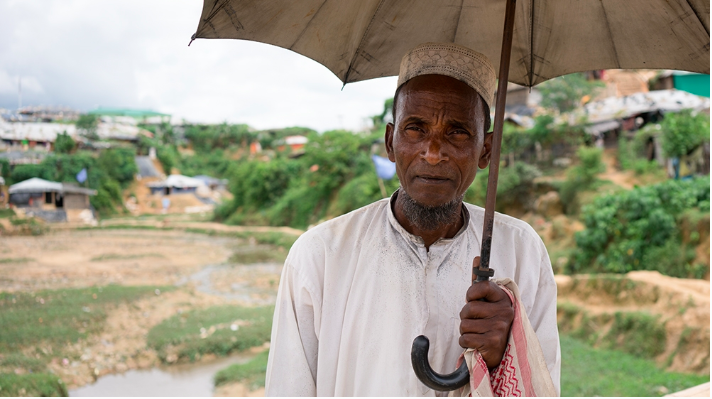
Cox's Bazar, Bangladesh — None of the more than 900,000 Rohingya who over the last year have fled a brutal crackdown by the Myanmar army, described by the United Nations as "textbook ethnic cleansing,” have returned from Bangladesh under a repatriation deal the two countries signed last November.
What they’re saying: For many of the Rohingya, who are not recognized by Myanmar as an ethnic group and are denied citizenship and government services, this was not the first time they had forcibly left their homes. Many now living refugee camps tell Al Jazeera they will not return unless their demands — including citizenship, greater inclusivity in government services such as education and the workforce, the ensuring of security and safety, and reparations for all that they have lost — are met.
- Hujjatul Islam, 12: "I was in Year Three in school when I was in Rakhine. Now I can't find a proper school here except for the madrasahs where we learn the Quran. I haven't heard of any repatriation deal. I'll go back if we have Rohingya recognition. We would much rather die here if Myanmar forces us to go back without granting us citizenship."
- Mahmud Yunis, 35: "I have no demands. I want to go back to my village without any compensation or conditions. I used to be a porter. Now I do nothing. Every day I face many difficulties just to get food. I am dependent on aid. There are also hygiene problems, such as the lack of sanitary latrines."
- Dildar Begam, 35: "I have nine children and a husband. It took us two days to reach Cox's Bazar. I saw so many massacres, rapes, and homes set on fire. I haven't heard of the repatriation deal. I would only go back if Myanmar granted us Rohingya recognition. I don't feel good here because this is not my land."
- Mir Ahmad, 60: "I am willing to go back to Rakhine if the Myanmar government meets our demands, such as compensation and recognizing us as citizens. Here I can get food and shelter. I feel better here than in my own village because there's more security. But I want to return to Fukira Bazar because there, I can live in dignity."
Go deeper: Read the full Al Jazeera report.
Source : https://www.axios.com/rohingya-crisis-one-year-on-...
 Rohingya refugees long to return home but fear what they'd find there
Rohingya refugees long to return home but fear what they'd find there